At its latest synod, the Diocese of Eastern Newfoundland and Labrador has voted to marry same-sex couples or, as the article below would have it “has voted in favor of marriage equality.”
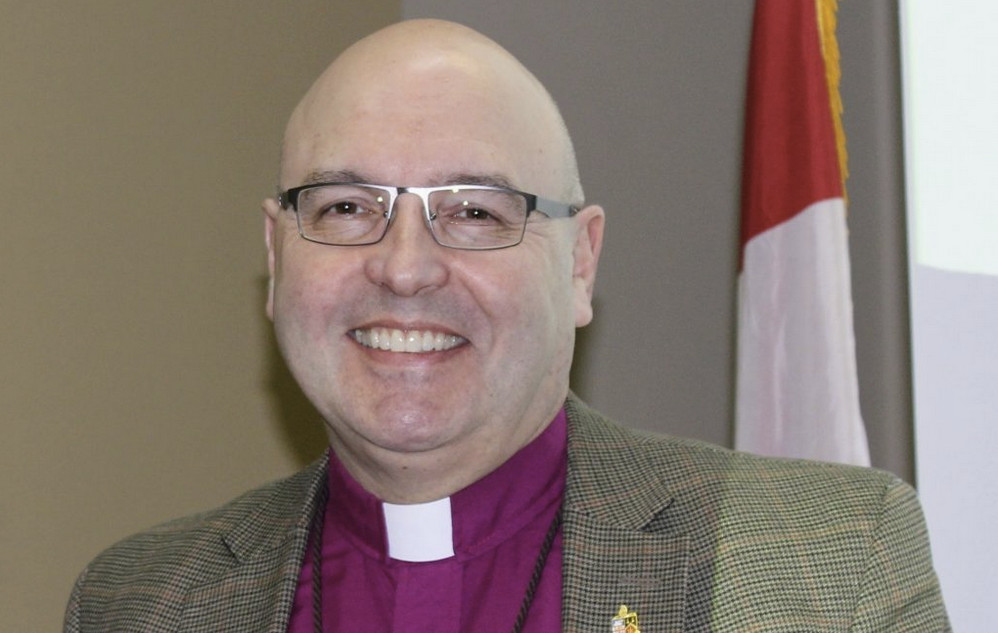 The Anglican Diocese of Eastern Newfoundland and Labrador has voted in favor of marriage equality.
The Anglican Diocese of Eastern Newfoundland and Labrador has voted in favor of marriage equality.
Last July, the General Synod of the Anglican Church of Canada voted against marriage equality within the Anglican marriage canon. However, the motion can be voted on at the provincial level as well.
The vote happened during NL Synod 2019 at the Sheraton Hotel in St. John’s earlier today.
In total 88 per cent of Anglican delegates in attendance voted in favor of affirming marriage equality.
127 votes were cast, with 112 people in favor and 15 against.
Reverend Dr. Geoffrey Peddle, Bishop of the Diocese of Eastern Newfoundland & Labrador, says that in voting for marriage equality they have made the church bigger and inclusive for everyone.
He says the Diocese has made it very clear that this is who they are now and how they want to move forward.
At least Peddle is clear that “this is who they now are”. They are not the Bride of Christ, not the Body of Christ, not the ecclesia – a called out assembly, not members of the church universal. They are a group of people who marry same-sex couples: this is who they are now.
Here is an updated list of dioceses that will marry same-sex couples:
Diocese of Eastern Newfoundland and Labrador
Diocese of Western Newfoundland
Diocese of New Westminster
Diocese of Toronto
Diocese of Niagara
Diocese of Montreal
Diocese of Ottawa
Diocese of Nova Scotia and Prince Edward Island
Diocese of Rupert’s Land
Diocese of Kootenay
Diocese of Edmonton
Diocese of B.C.
Diocese of Huron
Like this:
Like Loading...
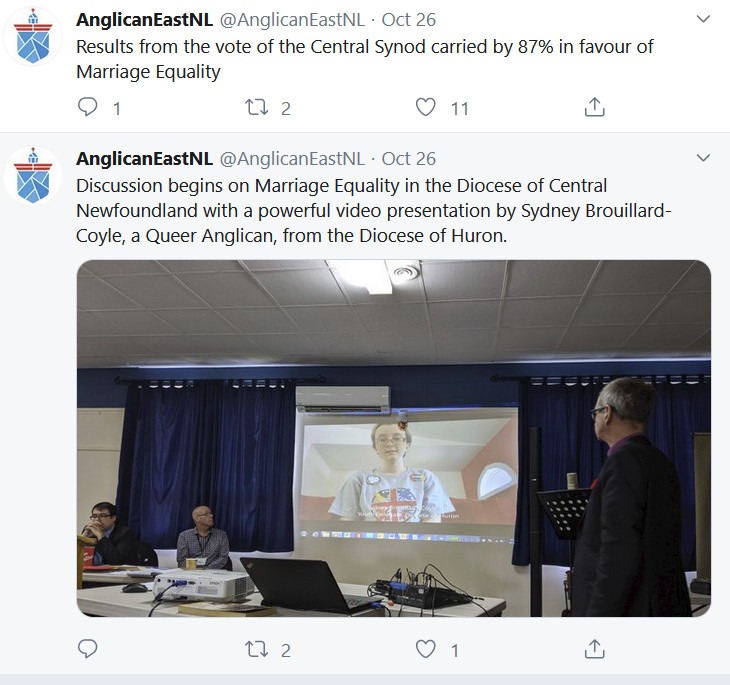


 The Anglican Diocese of Eastern Newfoundland and Labrador has voted in favor of marriage equality.
The Anglican Diocese of Eastern Newfoundland and Labrador has voted in favor of marriage equality.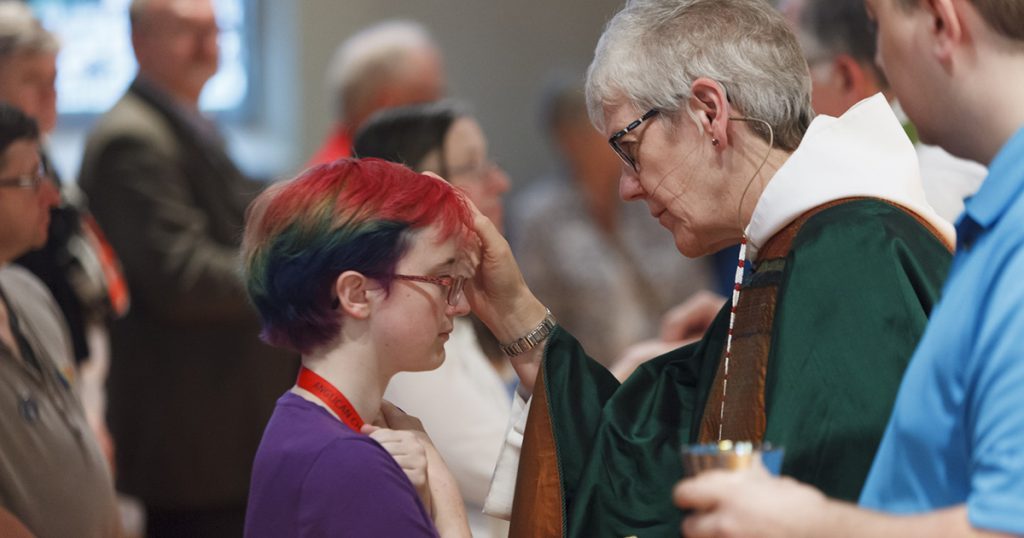 Marriage vote failure ripples through church
Marriage vote failure ripples through church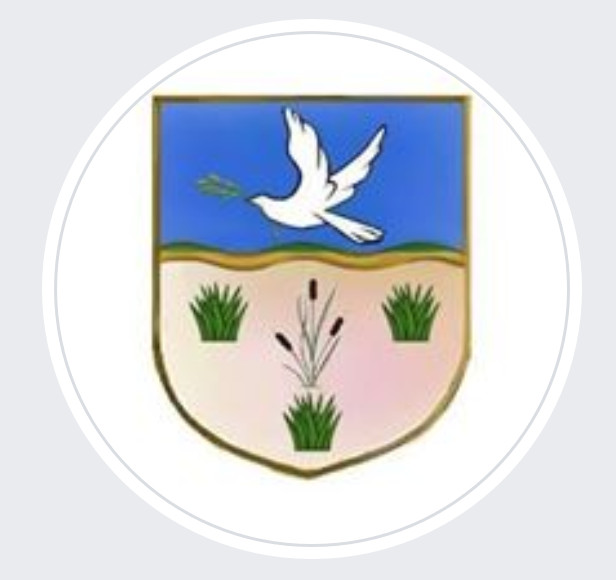 The one item of discussion that drew most of the attention and energy was the second reading of proposed changes to Canon XXl (the Marriage Canon). A change to this canon requires passage by a 2/3 majority in each of the orders (laity, clergy, and bishops) voting separately at two successive general synods. The proposed change achieved this in 2016 and thus was presented for the second time on July 12th. The resolution failed to pass in the Order of Bishops and was therefore defeated. This means the canon has not changed, and the church did not decide to part ways with the church’s doctrine. As had been foreseen, both the consideration and decision were very difficult and brought pain to those involved and those affected. The day before the resolution was considered, a “Word to the Church” from the Council of General Synod was adopted by the meeting, and this was reflected in a statement issued from the bishops on the Monday following the vote. These both recognize that we do not have unity in our thinking about marriage, understanding of scripture, or pastoral response. These also indicate a commitment to work together and to treat one another with dignity. These statements include an acknowledgement that some bishops, with their dioceses, have chosen to allow for some expression of same-sex marriage (what has been called “local option”). While some have interpreted this as affirmation or endorsement of “local option”, this is not accurate. The Diocese of Athabasca will continue to live within the bounds of the current canon and doctrine of the Church Catholic. While doing so, it is with the expectation that every person who comes to the church or who we encounter is treated with grace and honour. All who wish to live as disciples of Jesus are welcome as part of our Christian family.
The one item of discussion that drew most of the attention and energy was the second reading of proposed changes to Canon XXl (the Marriage Canon). A change to this canon requires passage by a 2/3 majority in each of the orders (laity, clergy, and bishops) voting separately at two successive general synods. The proposed change achieved this in 2016 and thus was presented for the second time on July 12th. The resolution failed to pass in the Order of Bishops and was therefore defeated. This means the canon has not changed, and the church did not decide to part ways with the church’s doctrine. As had been foreseen, both the consideration and decision were very difficult and brought pain to those involved and those affected. The day before the resolution was considered, a “Word to the Church” from the Council of General Synod was adopted by the meeting, and this was reflected in a statement issued from the bishops on the Monday following the vote. These both recognize that we do not have unity in our thinking about marriage, understanding of scripture, or pastoral response. These also indicate a commitment to work together and to treat one another with dignity. These statements include an acknowledgement that some bishops, with their dioceses, have chosen to allow for some expression of same-sex marriage (what has been called “local option”). While some have interpreted this as affirmation or endorsement of “local option”, this is not accurate. The Diocese of Athabasca will continue to live within the bounds of the current canon and doctrine of the Church Catholic. While doing so, it is with the expectation that every person who comes to the church or who we encounter is treated with grace and honour. All who wish to live as disciples of Jesus are welcome as part of our Christian family.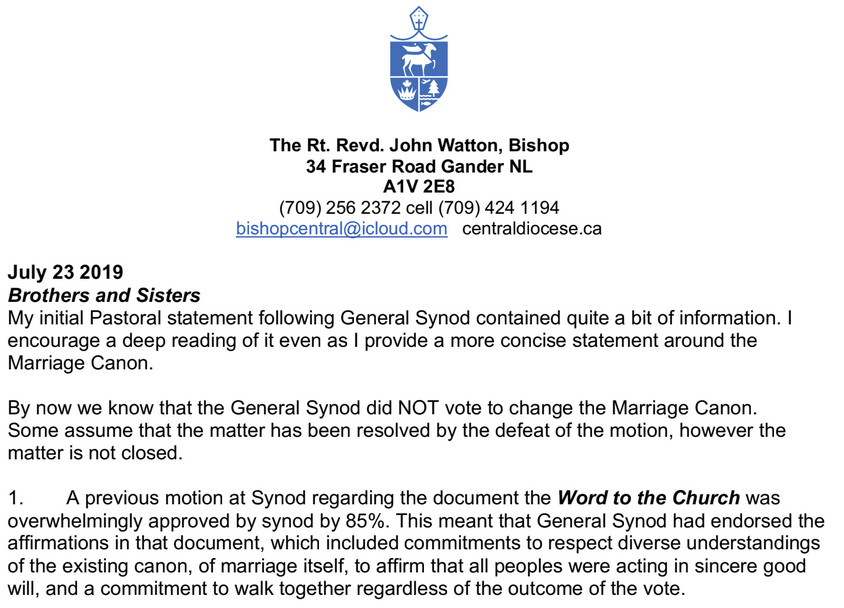
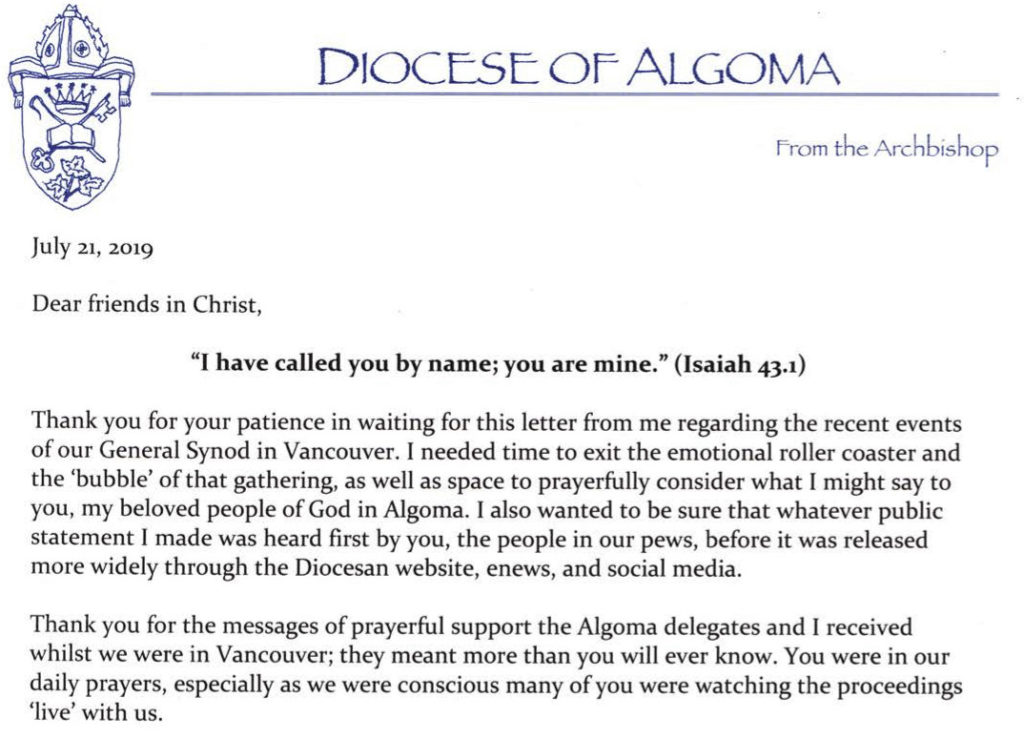
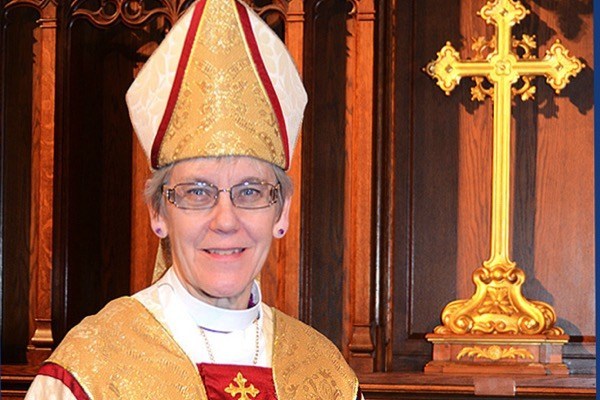 Given the strong support in Huron for this possibility, as of August 1, 2019, I am authorizing the availability of marriage to same-sex couples as a pastoral local option under the following guidelines:
Given the strong support in Huron for this possibility, as of August 1, 2019, I am authorizing the availability of marriage to same-sex couples as a pastoral local option under the following guidelines: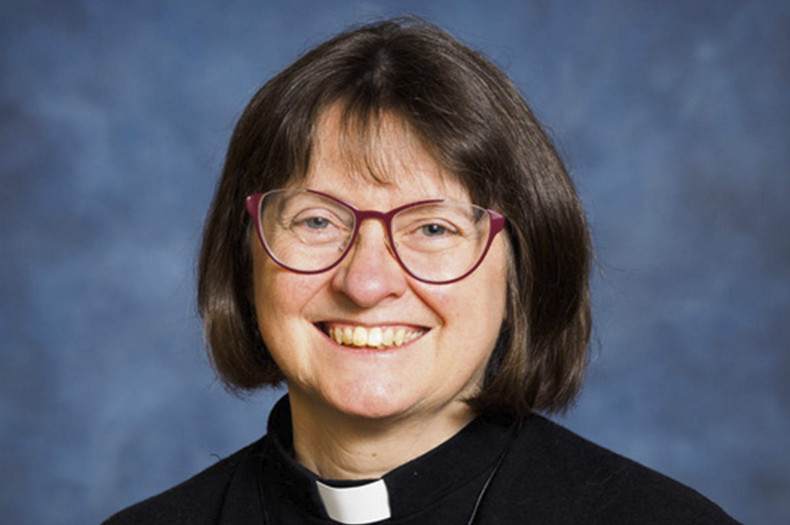 Rev. Dr. Lynne McNaughton, elected as Bishop to the Anglican Diocese of Kootenay, to which Cranbrook belongs, earlier this year, will also be issuing a joint statement with other bishops who have affirmed all of this. Additionally, she will be going ahead to authorize same-gender marriage within the Diocese of the Kootenay.
Rev. Dr. Lynne McNaughton, elected as Bishop to the Anglican Diocese of Kootenay, to which Cranbrook belongs, earlier this year, will also be issuing a joint statement with other bishops who have affirmed all of this. Additionally, she will be going ahead to authorize same-gender marriage within the Diocese of the Kootenay.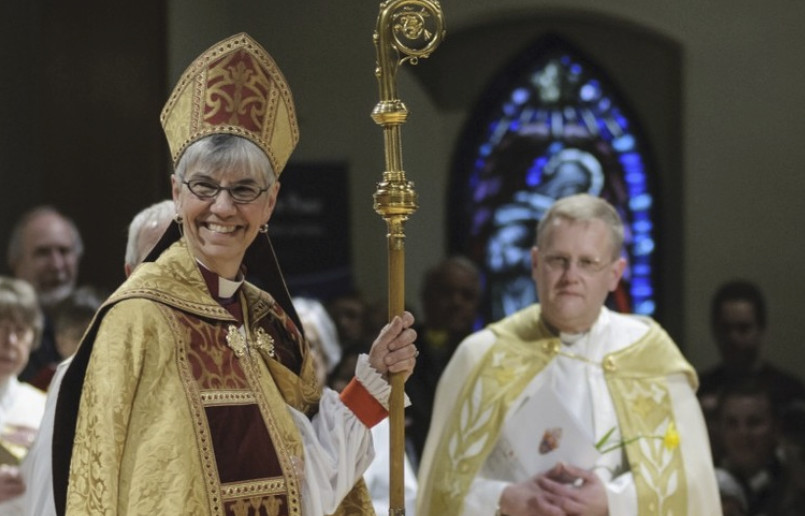 As of August 1, 2019 , I will authorize a liturgy for the marriage of same-sex couples within the Diocese of New Westminster under the following conditions:
As of August 1, 2019 , I will authorize a liturgy for the marriage of same-sex couples within the Diocese of New Westminster under the following conditions: